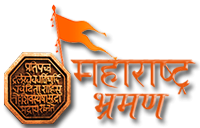Pune
Queen of the Deccan, Oxford of the East, and cultural capital of Maharashtra, Pune is a city with a future that promises to be as interesting as its history.
Long-standing bastion of the Maratha empire and home to the legendary Raja Shivaji, the Pune district is marked by magnificent land and forts, testimony to its glorious past.
After Shivaji, the early 18th century saw the emergence of the Peshwas, a Maratha family that grew from being ministers at the court into a major political power over the next few decades. However, after the battle of Panipat in 1761, the Maratha empire began to decline and in 1818, Pune was taken over by the British East India Company.
Today, Pune is the centre of traditional Marathi culture, in which education, arts and crafts, and theatre are given pride of place. It has one of India’s oldest universities and its numerous colleges attract both Indian and international students, which is probably why it is called the Oxford of the East.
Pune is slowly becoming a cosmopolitan city and is now an important commercial centre. The narrow winding roads of the old Pune offer an interesting contrast to the open, spacious new city. However, Pune retains the old-world charm and its many quaint characteristics, including the omnipresent cyclists, rickshaws and a daily siesta hour that is taken very seriously indeed.
Surrounded by verdant hills and beautiful lakes, Pune has a temperate climate and is among the greenest urban areas in the country.
